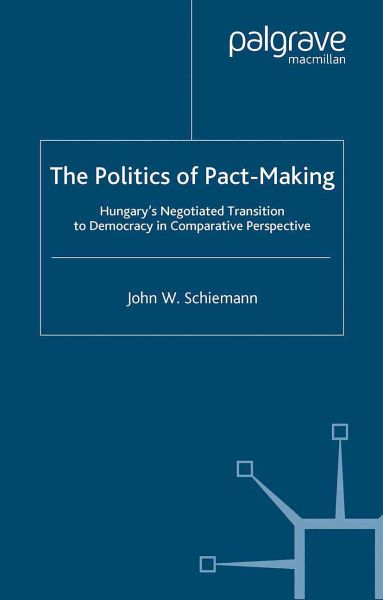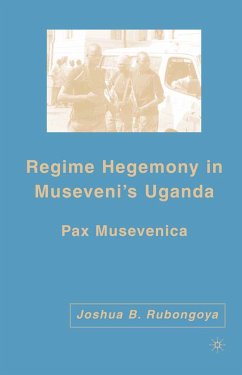
The Politics of Pact-Making (eBook, PDF)
Hungary's Negotiated Transition to Democracy in Comparative Perspective
Versandkostenfrei!
Sofort per Download lieferbar
40,95 €
inkl. MwSt.
Weitere Ausgaben:

PAYBACK Punkte
20 °P sammeln!
Contributing to the literature on democratic transitions and with a focus on institutional bargaining, in this fascinating book the Hungarian case is contrasted with those of Poland, South Africa and China to explore the contours of what bargaining strategies affect outcomes. The result is an increased understanding of how actors and their interaction can make peaceful transition possible.
Dieser Download kann aus rechtlichen Gründen nur mit Rechnungsadresse in A, B, BG, CY, CZ, D, DK, EW, E, FIN, F, GR, HR, H, IRL, I, LT, L, LR, M, NL, PL, P, R, S, SLO, SK ausgeliefert werden.












